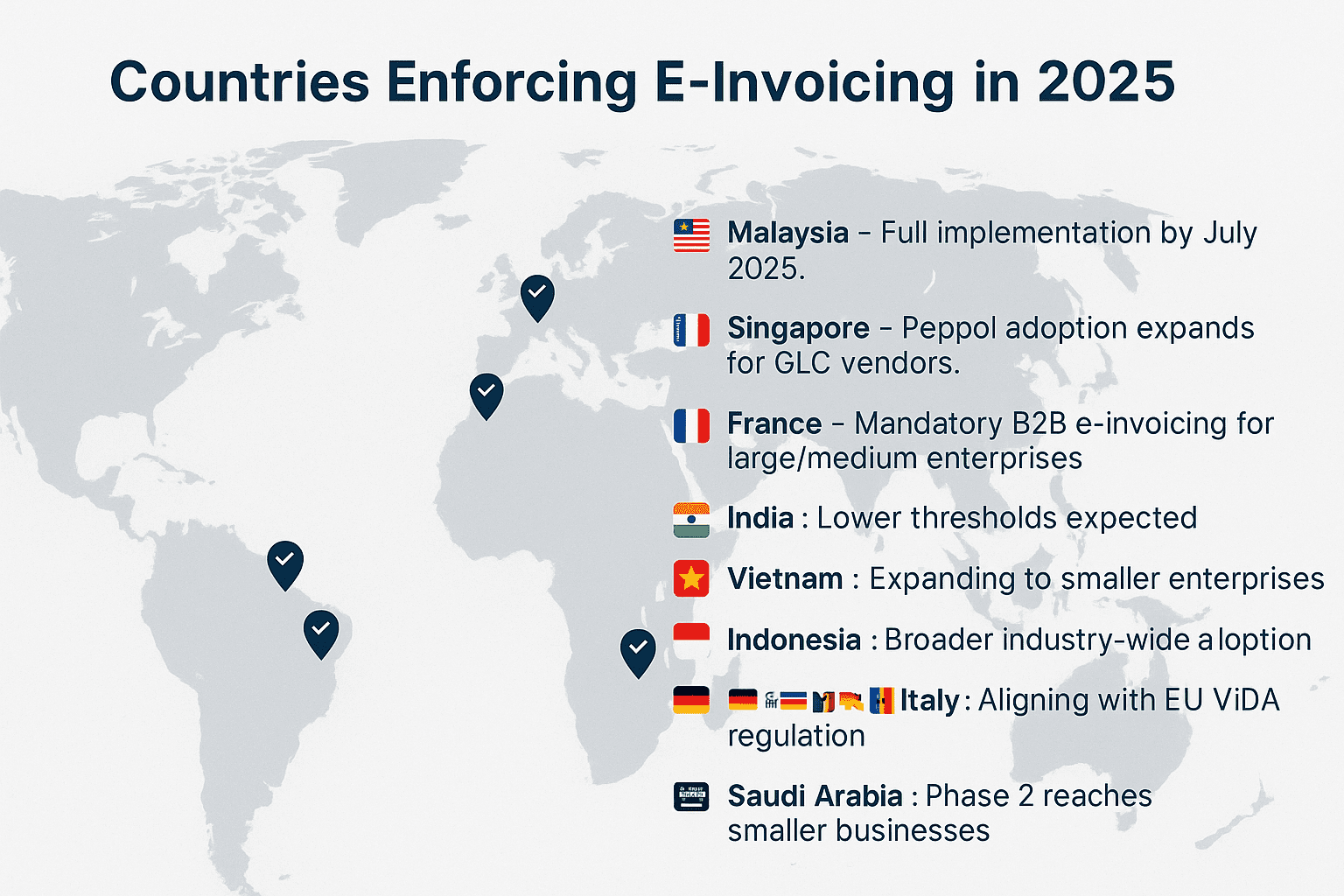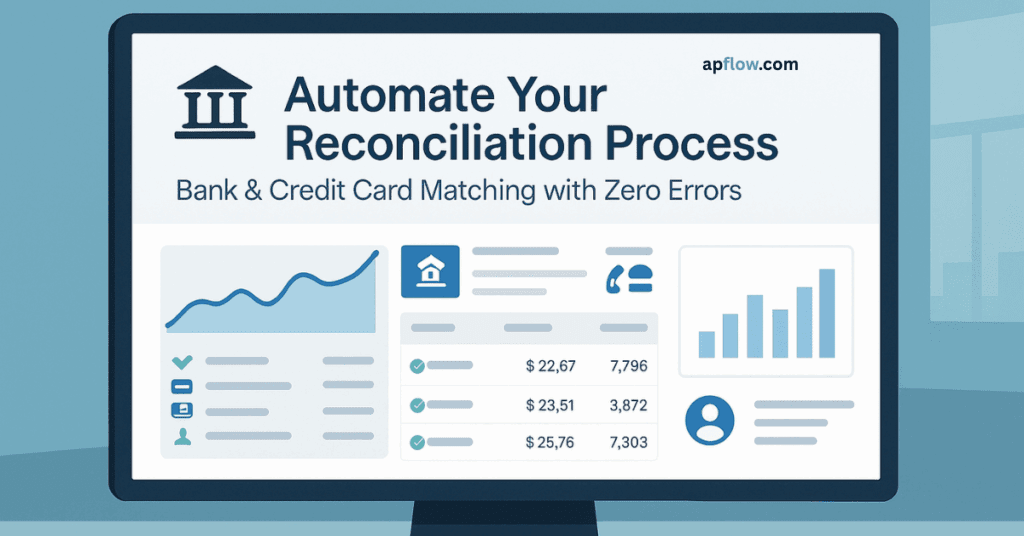E-invoicing isn’t just a trend—it’s becoming law across the globe. As governments digitize their tax systems, businesses must shift from traditional invoicing to real-time, validated digital invoices.
Why E-Invoicing Is Becoming Mandatory Globally
E-invoicing helps:
✅ Improve tax collection
✅ Reduce VAT/GST fraud
✅ Automate auditing and reporting
✅ Ensure transparency in B2B and B2G workflows
Whether you’re a multinational enterprise or an SME, adapting to e-invoicing is no longer a nice-to-have—it’s a compliance necessity. It also improves internal efficiency by minimizing paper handling, human errors, and delayed payments.
📊 Countries Enforcing E-Invoicing in 2025:
🇲🇾 Malaysia – Full implementation by July 2025
🇸🇬 Singapore – Peppol adoption expands for GLC vendors
🇫🇷 France – Mandatory B2B e-invoicing for large/medium enterprises
🇮🇳 India – Lower thresholds expected
🇻🇳 Vietnam – Expanding to smaller enterprises
🇮🇩 Indonesia – Broader industry-wide adoption
🇩🇪🇮🇹 Germany & Italy – Aligning with EU ViDA regulation
🇸🇦 Saudi Arabia – Phase 2 reaches smaller businesses
💡 Pro Tip: Each country has unique rules and formats. Choose an AP automation platform that’s agile, compliant, and cross-border ready.
🇲🇾 Malaysia’s E-Invoicing Rollout

Malaysia’s LHDN (Inland Revenue Board) has announced a clear compliance timeline:
📅 August 2024 – > RM100 million turnover
📅 January 2025 – > RM50 million turnover
📅 July 2025 – Mandatory for all businesses
To comply businesses must:
🔹 Connect to MyInvois platform
🔹 Use LHDN-approved formats
🔹 Ditch manual/PDF invoices—they won’t be valid
For finance leaders, this means upgrading internal processes and working closely with IT teams to ensure integration with LHDN APIs. A delay in readiness could lead to reporting errors or non-compliance penalties.
✔️ AP Flow’s Malaysia-ready integrations ensure smooth onboarding and real-time validation.
🇸🇬 Singapore’s Peppol Adoption Journey
Singapore is a regional leader in Peppol-based e-invoicing, championed by IMDA.
Benefits of Peppol E-Invoicing:
🔗 Peppol = secure, cross-border invoicing
⚙️ Faster processing, fewer manual errors
🚀 Strong adoption among GLCs & public sector vendors
Even though e-invoicing isn’t yet fully mandatory, its adoption is accelerating across industries including finance, logistics, and manufacturing. Businesses adopting Peppol early position themselves as digitally mature and government-ready.
AP Flow supports Peppol-ready formats and Microsoft Dynamics integration—perfect for Singapore-based digital-first companies.
Challenges of Multi-Country Compliance
If your business spans multiple jurisdictions, e-invoicing compliance becomes tricky.
Key challenges:
❗ Changing laws across borders
❗ Real-time integration with different tax systems
❗ Varied invoice formats (XML, JSON, etc.)
❗ Training finance teams in multiple regions
In addition, country-specific mandates often come with tight deadlines, limited testing environments, and mandatory digital signatures. Navigating all this manually can increase risk and workload for already stretched finance teams.
🛡️ Why Choose AP Flow for Global E-Invoicing?
AP Flow is designed to keep you automated, compliant, and future-ready.
✅ Supports compliance in 10+ countries
✅ Built for Peppol and LHDN standards
✅ Integrates with ERPs like Microsoft Dynamics & SAP
✅ Microsoft-recognized and featured in Gartner Magic Quadrant
Related AP Flow Resources:
- Fraud Risk Detection in P2P Processes
- Bank & Credit Card Reconciliation Services
- Financial Consolidation Services
With localized rule engines and flexible configuration, AP Flow ensures your business can comply without disrupting day-to-day workflows.
✅ Final Word: 2025 Is the Year to Prepare
The global shift toward e-invoicing is not optional—it’s happening. Whether you’re in Malaysia, France, or Singapore, the time to act is now.
With AP Flow, you can:
🚀 Reduce risks
🛠️ Automate compliance
🔍 Avoid fines and stay audit-ready
The sooner you begin preparing, the more confidently you can meet the mandates—and set up your finance team for long-term digital success.
📞 Book Your Free E-Invoicing Audit
Let us help you simplify compliance and take the guesswork out of mandates.

